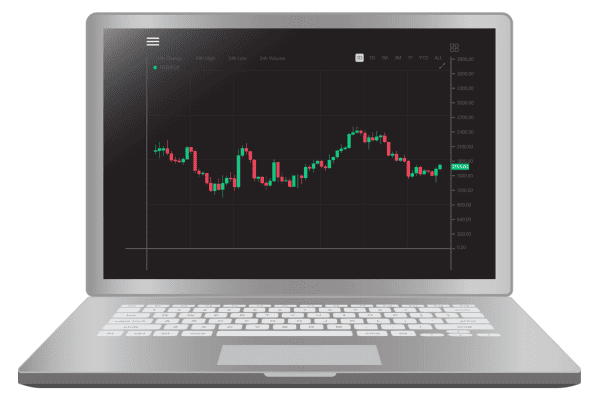Common Mistakes to Avoid & Who Makes Money In Options (2023)
In this article, we will discuss how you can make money online from the comfort of your home through options trading.
We’ll explore options and discover who makes money from options. Whether you’re a beginner or have some experience with trading, we’ll provide you with helpful insights and tips on maximizing your earnings.
So sit back, relax, and get ready to learn about this exciting opportunity for financial growth.
Who Makes Money in Options
Introduction to Options
Options are a popular and potentially lucrative financial instrument for traders looking to diversify their portfolios and take advantage of market opportunities.
However, understanding the basics of options and the various strategies involved is crucial for success in this field.
Understanding the Basics of Options
Options are derivative contracts that give traders the right, but not the obligation, to buy or sell an underlying asset at a specified price (strike price) within a specific timeframe. This flexibility allows traders to profit from both rising and falling markets.
There are two types of options: calls and puts.
Difference between Call and Put Options
A call option gives the holder the right to buy the underlying asset, while a put option grants the holder the right to sell the asset.
Call options are typically used when one expects the underlying asset’s price to rise, while put options are used when one anticipates a decline in the asset’s value.
Options Trading Strategies
Options trading strategies can vary widely, depending on the trader’s goals and risk tolerance. Common methods include covered call, long call, and bull call spread. These strategies aim to maximize profits, minimize losses, and mitigate risk.
Option Market Participants
The options market has three primary participants: individual traders, institutional investors, and market makers. Understanding their roles can provide insights into how options trading operates.
Individual Traders
Individual traders are the backbone of the options market. They include retail investors, day traders, and professionals looking to capitalize on market movements. Individual traders often use options to speculate on future price movements or hedge their existing positions.
Institutional Investors
Institutional investors, such as banks, mutual funds, and pension funds, play a significant role in the options market. These prominent players often have access to substantial resources, allowing them to execute more complex options strategies and influence the overall market.
Market Makers
Market makers are essential players in the options market, providing liquidity and ensuring smooth trading. Their primary function is buying and selling options contracts, facilitating the market.
Market makers make money from the spread between the bid and ask prices by utilizing their expertise in timing trades.
Role of Market Makers
Market makers play a vital role in options trading by creating an orderly market and narrowing the bid-ask spread. They constantly adjust their quotes based on supply and demand dynamics to ensure fair pricing for all participants.
They help maintain liquidity, allowing traders to enter and exit positions efficiently.
Market Maker’s Profit Mechanisms
Market makers profit through various mechanisms, including capturing the bid-ask spread, delta hedging, and volatility trading. The bid-ask spread is the difference between an option’s buying and selling price.
Market makers aim to buy at the bid price and sell at the asking price, pocketing the difference as their profit.
Options Trading Brokers
Choosing a reliable options broker is crucial for successful and hassle-free trading. When selecting a broker, it’s essential to consider factors such as reputation, regulatory compliance, trading platforms, customer support, and account types.
It’s also crucial to understand the commissions and fees the broker charges.
Understanding Commissions and Fees
Options trading involves commissions and fees that can significantly impact profits. Different brokers have varying fee structures, including per-trade commissions, contract fees, exercise or assignment fees, and margin interest charges.
Traders must know these costs and factor them into their trading strategies.
Important Features to Consider
When choosing an options broker, it’s essential to consider various features. These may include real-time market data, advanced trading tools and platforms, educational resources, research capabilities, and access to multiple options contracts.
Evaluating these features can help traders make informed decisions.
Profitable Option Strategies
Several option strategies can generate profits when executed correctly. Some popular methods include the covered call, long call, and bull call spread. These strategies leverage the flexibility of options to capture potential gains while managing risks.
Covered Call Strategy
The covered call strategy involves owning the underlying asset and selling call options against it. This strategy generates income from the premiums received, providing a cushion against potential losses and potentially enhancing overall returns.
Long Call Strategy
The long call strategy involves purchasing call options with the expectation that the underlying asset’s price will rise. This strategy offers leverage and unlimited profit potential while limiting losses to the premium paid for the options.
Bull Call Spread Strategy
The bull call spread strategy involves buying a call option with a lower strike price and simultaneously selling one with a higher strike price. This strategy capitalizes on upward price movements while limiting potential losses.
Risk Management in Options
Managing risk is crucial in options trading, as even seasoned traders can experience losses. Understanding the significance of risk management and implementing appropriate strategies to protect capital is essential.
Importance of Risk Management
Risk management is essential in options trading to mitigate potential losses and protect against market volatility. Strategies such as asset allocation, diversification, position sizing, and setting stop-loss orders can help manage risks effectively.
Options Strategies for Risk Mitigation
Several option strategies can be employed to mitigate risk in options trading. These may include protective puts, collars, and iron condors. These strategies can act as insurance policies, limiting downside risk and providing peace of mind.
Successful Option Traders
Some individuals have made substantial wealth through successful options trading. Learning from the experiences of these successful traders can provide valuable insights into the mindset and strategies required for success.
Top Option Traders in History
Historically, Notable option traders include Warren Buffett, George Soros, and Paul Tudor Jones. These traders have demonstrated exceptional skills, discipline, and the ability to profit in the options market consistently.
Traits of Successful Option Traders
Successful options traders often possess specific characteristics that set them apart. These include a deep understanding of markets, strong analytical skills, discipline, patience, adaptability, and the ability to manage emotions effectively.
Identifying Profitable Options
Identifying profitable options requires careful analysis and consideration of various factors. These may include implied volatility, time decay, liquidity, fundamental analysis, technical analysis, and market trends.
By examining these factors, traders can increase their chances of selecting profitable options.
Factors to Consider for Option Selection
When selecting options, it’s essential to consider factors such as the expiration date, strike price, and premium. Understanding market sentiment, upcoming events, and earnings announcements can help traders make informed decisions.
Using Technical and Fundamental Analysis
Technical and fundamental analysis can provide valuable insights into option selection. The technical study examines historical price patterns and indicators, while the fundamental analysis assesses the underlying company’s financials and industry outlook.
A combination of both approaches can enhance decision-making.
Common Mistakes to Avoid
To avoid unnecessary losses, it’s crucial to be aware of common mistakes options traders make. These mistakes include overtrading, failing to set stop-loss orders, lacking knowledge or understanding about options, and emotional decision-making.
1. Overtrading
Overtrading occurs when traders execute too many trades, often due to FOMO (fear of missing out) or impulsiveness. Overtrading can lead to excessive transaction costs, emotional exhaustion, and increased risk of losses.
2. Failure to Set Stop-Loss Orders
Stop-loss orders are essential to protect against significant losses. Failing to set stop-loss orders can expose traders to excessive risk, as market movements can quickly erode a position’s value.
3. Lack of Knowledge
Lack of knowledge and understanding about options is a common mistake. Educating oneself thoroughly about options trading, including terminology, strategies, and risk management principles, is essential.
Continuous learning and staying updated with market trends are crucial for success.
Conclusion – Who Makes Money In Options?
Options trading offers exciting opportunities for individuals to profit from market movements and diversify their investment portfolios.
Individuals can increase their chances of success in this dynamic field by understanding the basics of options, identifying suitable strategies, and effectively managing risks. Remember, anyone can make money in opportunities with the proper knowledge, skills, and diligent risk management.
We’re reader-supported. We may earn an affiliate commission when you buy through links on our site.

Angus Robertson is an authority in online marketing, affiliate marketing, and Search Engine Optimization (SEO). With an innate passion for the digital world, he has spent the last two decades assisting businesses in amplifying their online presence and boosting profitability.







